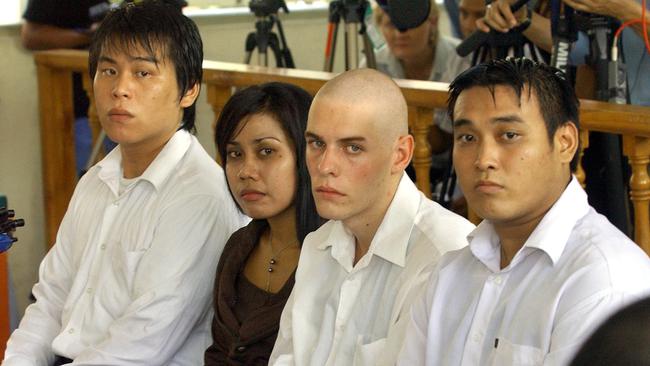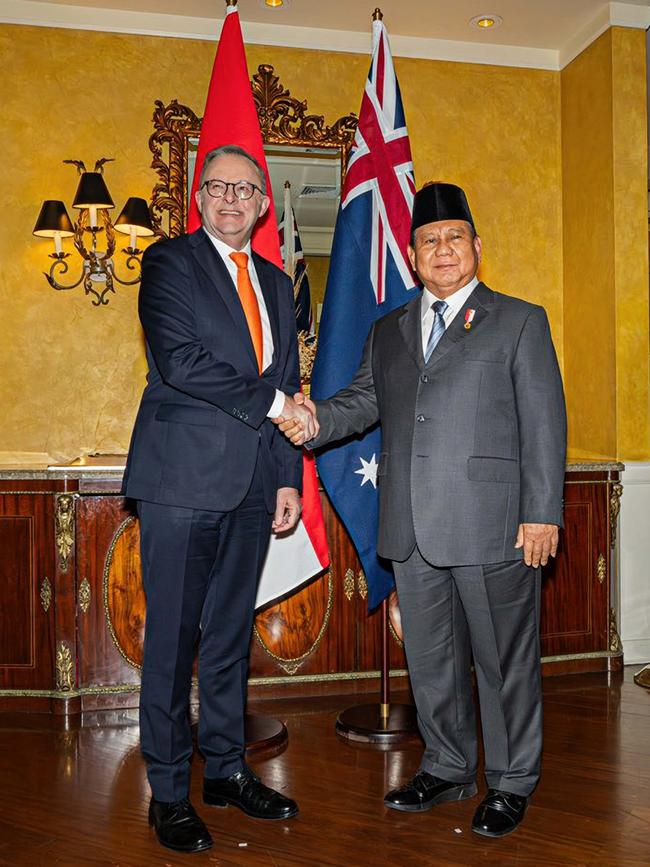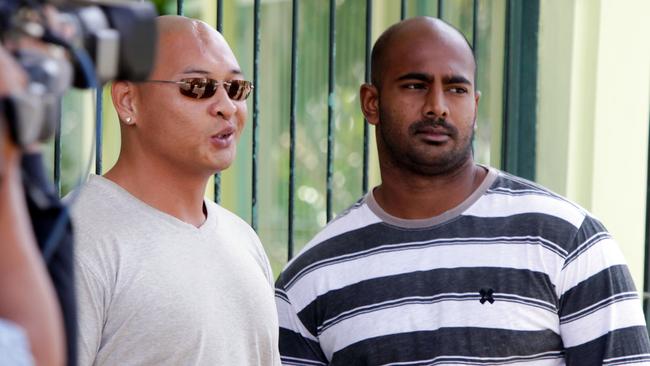’Sensitive’ Bali Nine mission a ‘humanitarian’ case
More information has come to light about why Australia wants to bring home the five men serving life sentences for drug trafficking in Indonesia.
True Crime
Don't miss out on the headlines from True Crime. Followed categories will be added to My News.
Australia’s request the five remaining Bali Nine convicts return to home soil has been made on “humanitarian grounds” as the Albanese Government warns speculation on the “sensitive” case is “unhelpful”.
Indonesia is currently considering the transfer, which could occur as early as December, with sources confirming Australia did not make any offer of a reciprocal prisoner swap or other inducement.
Anthony Albanese has consistently advocated for the return of the five imprisoned men — Matthew Norman, Martin Stephens, Si Yi Chen, Scott Rush and Michael Czugaj — in meetings with his Indonesian counterparts, with one source attributing the timing of this latest request to the recent election of new President Prabowo Subianto.

A spokeswoman for Foreign Minister Penny Wong on Monday confirmed the government was “working closely” with Indonesia on the request, which was based on “humanitarian grounds”.
“Further speculation on this case is unhelpful,” she said.
The spokeswoman said the five men had “now served nearly 20 years in prison, during which they have been separated from family and friends in Australia”.
“The men have also made efforts to reform and rehabilitate, and have made positive contributions in the Indonesian prison system,” she said.
A source said surprised family members of the five Australian men serving life sentences in Indonesia for drug trafficking learned of the request via media reports.
Norman’s wife spoke outside the infamous Kerobokan Prison on Monday, saying Matthew was “good”.
“God have mercy on us,” she said, praising Mr Prabowo for giving the families a “chance” to hope.
“Especially for my daughter as well, to enjoy having a father”.

But further details — such as how much longer the Australians might be required to serve in prison when home — are not being publicly canvassed amid concerns this would scupper any deal.
A government source said it was important Australia did not appear to be attempting to undermine the Indonesian justice system.
Reports Indonesian officials have argued the transfer would only occur if the prisoners continued to serve their life sentences back in Australia are unconfirmed.
Prior to the meeting in Peru, Mr Albanese had also raised the plight of the Bali Nine members with Mr Prabowo when the incoming Indonesian leader was in Canberra in August.
Mr Prabowo was defence minister and president-elect when he visited Australia for formal talks with Mr Albanese, Deputy Prime Minister and Defence Minister Richard Marles and other cabinet ministers.
The five men have been in jail since their arrest alongside four others in 2005 for attempting to smuggle heroin from Indonesia.
The two ringleaders of the Bali Nine — Andrew Chan and Myuran Sukumaran — were executed in 2015.
Then-Indonesian president Joko Widodo, who had taken office the year before, defended his country’s use of the death penalty, insisting Indonesia was facing an emergency due to rising narcotics use.
Another Bali Nine member, Tan Duc Thanh Nguyen, died of cancer in prison in 2018, while Renae Lawrence was released later that year and deported to Australia after having her sentence commuted.
Mr Albanese had previously lobbied Mr Widodo to secure the release of the remaining five men, but a decision on the transfer had to wait until after Mr Prabowo’s inauguration.

On Sunday Coalition Attorney-General spokeswoman Michaelia Cash listed questions she believed the government should answer, including what was the “deal,” what had Indonesia “extracted” in exchange or what was Australia “giving up”.
She also asked if the Australians would have to continue to serve their prison sentences upon return.
Strongly advocating for consular cases has been a hallmark of Mr Albanese’s prime ministership.
In September last year he used high-level talks with China to raise the cases of five detained Australian citizens, three of whom faced the death penalty, including some on drug-related charges.
“We will always make representations for Australians who have been given the death sentence, for that to be removed,” he said in 2023.
The Albanese Government’s diplomatic successes include securing the release of Australian academic Sean Turnell from a Myanmar prison and journalist Cheng Lei from jail in China.
Australia’s approach in these complex cases has been one of extreme caution, with officials declining to confirm Mr Turnell was headed for freedom until his plane had physically touched down in Bangkok in 2022.
Similar Ms Lei’s release was kept quiet until she arrived in Melbourne, where she was met at the airport by Ms Wong.
More Coverage
Originally published as ’Sensitive’ Bali Nine mission a ‘humanitarian’ case





